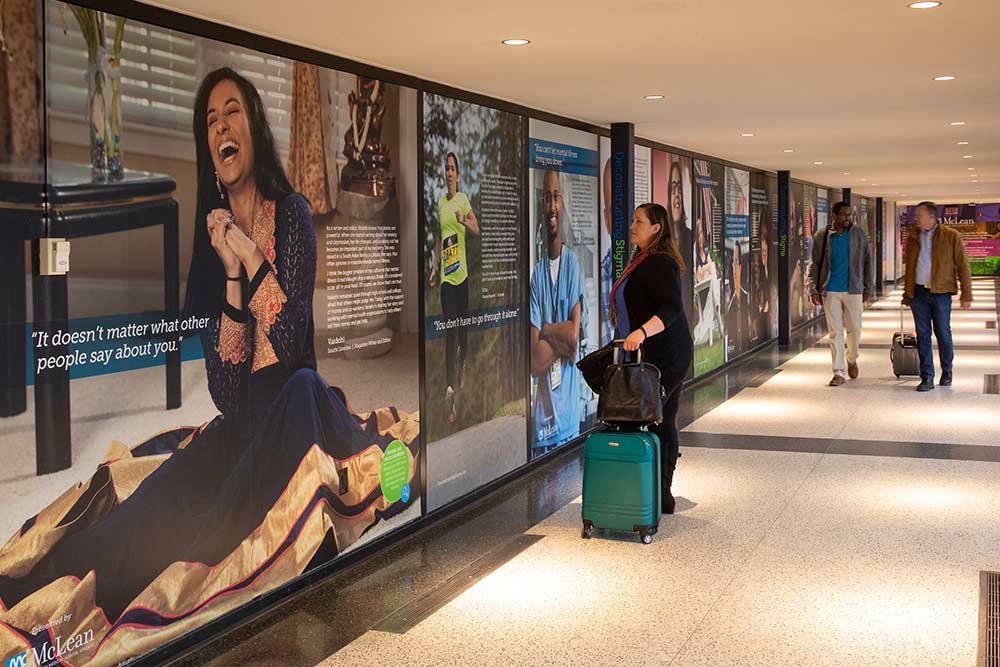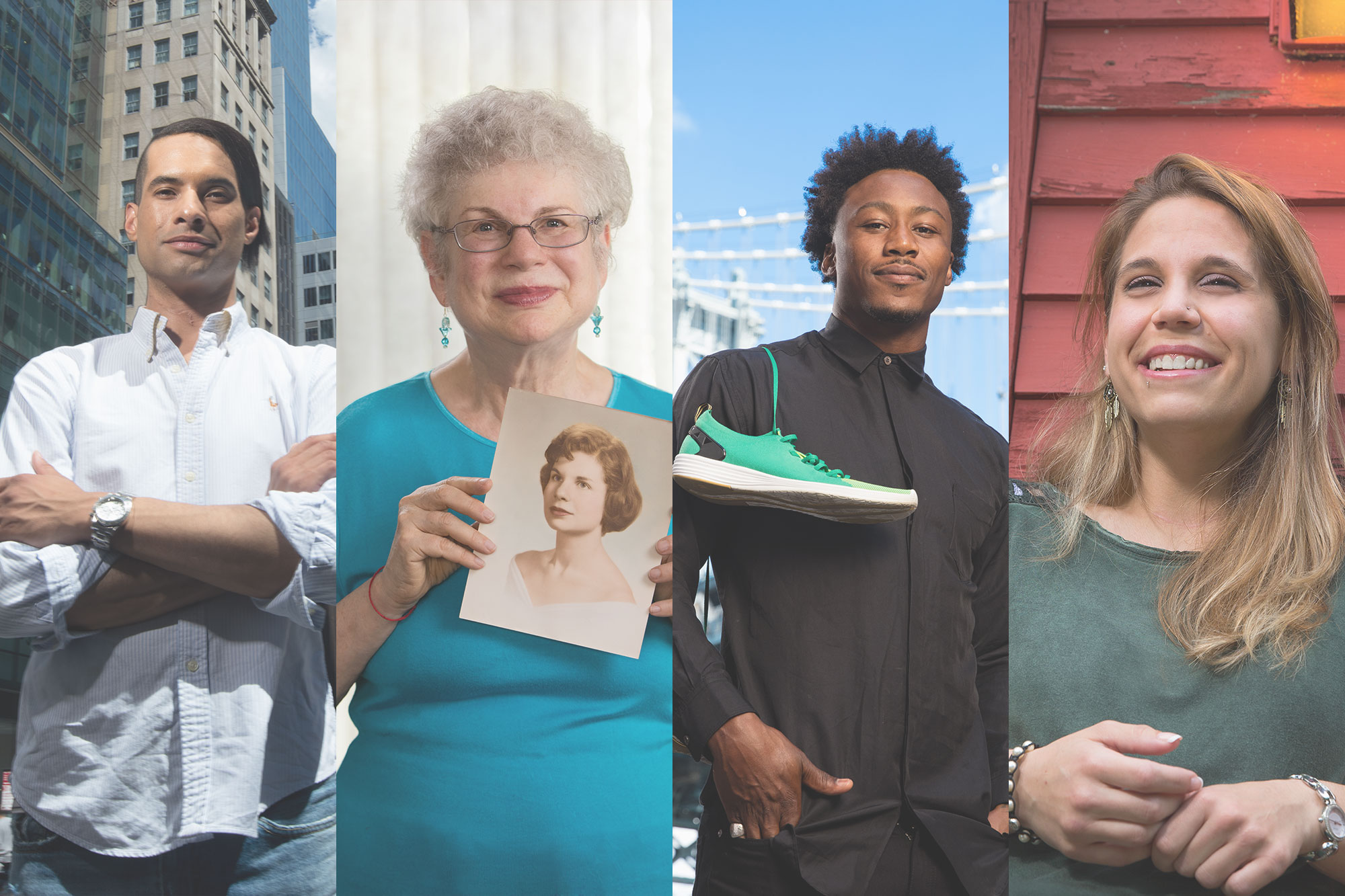Having mental health challenges is not the defining feature of who I am. It’s a factor, and if it comes up, I’ll talk about it. But there is a lot more to me than that.
Childhood trauma lies at the heart of April’s struggles with mental illness. She was abused, neglected, and abandoned as a child. Her mother had substance use disorder and a mental illness. Her father struggled with alcoholism. April spent many difficult years in the foster care system and lost contact with her four siblings.
I was a foster child, and I was in and out of foster homes. When I was eight and my brother was five, we were abandoned in an apartment for over a week. My mother had been institutionalized and we were somehow left behind. Years later, as adults, my brother said something, and we had a chance to have that conversation. He remembered it. We had a lot of repressed memories, a lot of trauma. It has been a lifetime of putting the pieces back together.
As a child, April experienced a “buzzing” feeling, a feeling she now identifies as anxiety. When she was young, she also started to hear voices.
I think I had extreme anxiety due to trauma, but I didn’t have the words to identify it. It was my baseline way of being. Looking back, I realize the voices were a manifestation of a mental illness, but I never got help or counseling because there was no one in my life willing or able to help me. I didn’t understand that my experiences were not typical, and I tried to keep my problems hidden. I thought that the key to success was to act normal.
By the age of 11, April began to self-medicate, which led to long-term substance use problems. When she was 20, she reached out for counseling, but she did not get the mental health services she needed. Connection to a 12-step program was helpful, and it led to a long period of recovery.
So here I am, 27 years old, in long-term recovery, trying to abstain from drugs, but still never having had any diagnosis or treatment for major mental health issues. There were a lot of dead ends. I thought, ‘I just have to soldier on.’
Unfortunately, postpartum depression, divorce, poverty, the struggles of being a single parent, and undiagnosed and untreated trauma and bipolar disorder led to a relapse. Soldiering on eventually led April to a therapist who was able to connect her with services. From there, she received appropriate and effective medication for her conditions, and she engaged in an intensive outpatient program. That led to long-overdue treatment for complex PTSD, bipolar I, and renewed participation in a 12-step recovery program.
Today, April is an active community member. She is currently a city councilor, focusing on empowering vulnerable and marginalized populations and addressing the climate crisis. She also volunteers for several community organizations and recently achieved a long-time goal of flipping a house.
April has worked on a U.S. Senate campaign as the assistant communications director. Previously, she also worked as a GAL (guardian ad litem), behavioral health provider, and mental health rehabilitation technician, and has owned and operated several small businesses. She is currently looking for employment that aligns with her lifelong practice of advocacy.
The biggest achievement of my life has been to break the cycle of abuse with my own children, and to see them recognize the value of prioritizing emotional and mental health.
April continues to work toward destigmatizing substance use disorder and mental illness. She recently worked on a committee that succeeded in bringing more intensive social supports into her community. She would like to see more attention and resources directed toward the prevention of childhood neglect and abuse, and increased access to mental health and recovery services.
So many lifelong problems stem from childhood trauma. I am committed to seeing better policies and more resources in place to support people facing these challenges. People shouldn’t have to suffer their whole lives.

